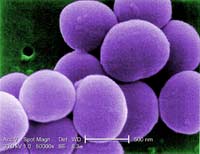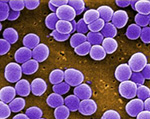
Study participants were tested for the presence of MRSA bacteria in their nose to see if they were a carrier.
I just ran across this MRSA study from Vanderbilt University Medical Center that examined pregnant moms. They wanted to see for mothers who were carriers of MRSA (an antibiotic resistant form of Staph aureus bacteria), would they pass MRSA bacteria along to their baby during birth, and would their baby then become infected?







